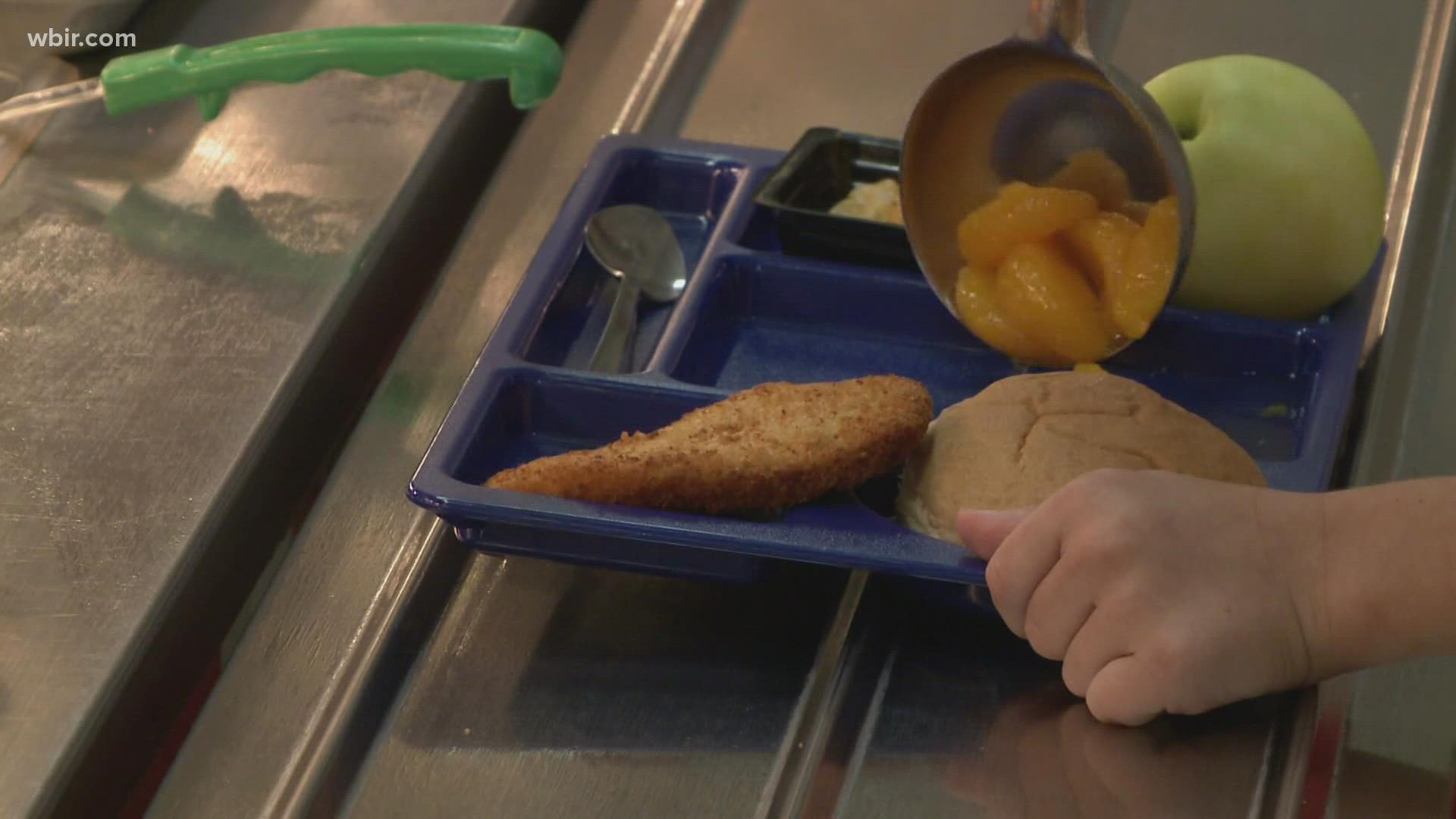KNOXVILLE, Tenn. — Students may be thinking about summer right now, but there is something families should be aware of — Knox County Schools will stop serving free breakfast and lunch to all students in the upcoming school year.
“Basically, we have been operating the Seamless Summer Option through USDA, which allows us to feed all students at no cost,” said Brett Foster, the executive director of school nutrition for Knox County Schools. “Part of that waiver is that you do not have to meet the area eligibility requirement.”
For over two years, kids in Knox County could eat for free, whether they were eligible for free meals or not based on their family's income. Officials said that is going to change.
KCS said the only students who will receive no-cost or reduced-price meals during the 2022-23 school year are those whose free and reduced-price meal application has been approved or those who attend a Community Eligibility Provision (CEP) school.
Foster said parents will need to fill out a household income application to qualify for free or reduced lunch during the upcoming school year.
"We are hopeful that families who think they qualify will apply for free and reduced benefits so that they will still be able to have those going into the next school year," said Foster.
The federal government put the program in place to help counties feed kids breakfast and lunch during the COVID-19 pandemic, hoping to ease the burden of paying for those meals when many families struggled to make ends meet. The program will expire in June.
“But the way that waiver works is Congress has to extend the authority to USDA to allow those to continue, and that has not happened,” said Foster.
In Knox County, families now have to pay $2 for breakfast; elementary students will owe $2.75 for lunch, and middle and high schoolers will need to pay $3 for lunch.
Leaders in Knox County said the decision to end free breakfast and lunch was beyond their control.
‘We are not choosing to end this; we would be glad for it to continue. However, we operate under USDA guidelines. If they don't extend that waiver, there's no way we can implement that," said Foster.

